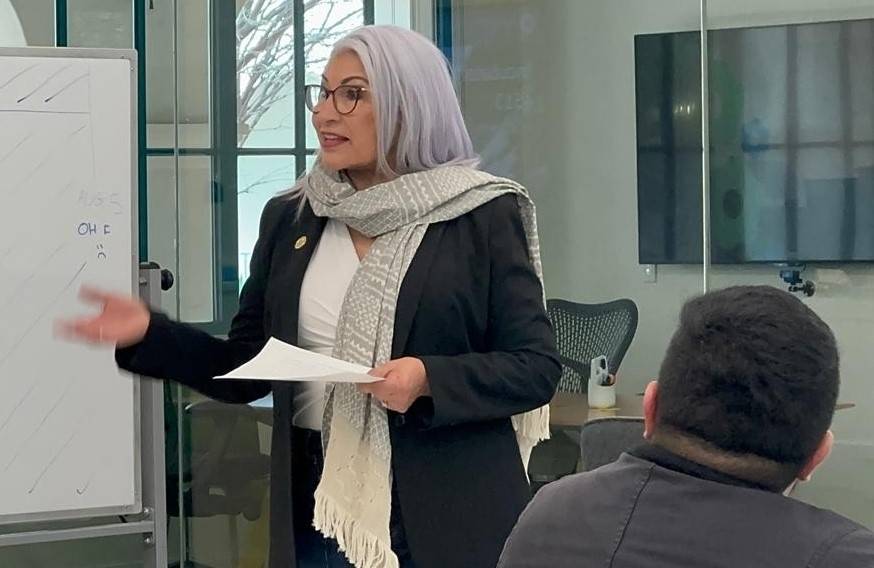Going global: SDSU’s Cristina Alfaro to guide university leaders toward internationalization
The university’s Associate Vice President of International Affairs has been selected to teach in a leadership program for senior international officers

Cristina Alfaro, Ph.D., Associate Vice President of International Affairs at San Diego State University, has been selected to mentor new international officers from universities globally as part of a leadership program from the Association of International Education Administrators (AIEA).
Alfaro, a nationally and internationally recognized scholar and long-time champion of multilingual and global education, spearheads SDSU’s internationalization strategy, which focuses on preparing global leaders who graduate with the perspectives and skills needed for today’s competitive global workforce.
For AIEA, Alfaro will join three faculty leading an intensive, week-long training program for new Senior International Officers. Topics include international strategic planning, innovation, recruitment, enrollment management, budgeting, internationalization of the curriculum, and assessment.
With over 600 members, AIEA brings together expertise on internationalization from across the globe. Founded in 1982 and based in North Carolina, it is the only member-based association focused on international education leaders.
“The organization is always looking at how we can better serve students, not only local students in our universities but also international students coming to us,” said Alfaro. “The program has a strong focus on education diplomacy and how we are preparing students for careers in the world, not just a specific region or nation, an area of strength that has distinguished SDSU since 2018 when President de la Torre joined the university.”
Alfaro will join a program called the AIEA Leadership Academy. Her three-year term officially begins in 2026, boosting the profile of SDSU’s internationalization blueprint.
A federally designated Hispanic Serving Institution, SDSU developed its Global Strategy through participation in the American Council of Education’s Internationalization Lab. The exercise, which synthesized input from faculty, staff, and students across the university, fleshed out four core priorities: International Access, Diversity, Equity and Inclusion; Global and Transborder Engagement; International Environmental, Social and Financial Sustainability; and International Innovation.
SDSU welcomed about 1,400 international students last year and sent roughly 1,300 students to study abroad as international education regains momentum after the pandemic. The university provides more than a dozen faculty-led internships/programs abroad, supports myriad transborder engagement efforts, and fosters international partnerships through its Collaborative Online International Learning (COIL) program.
SDSU’s internationalization work extends not only to the main campuses in California but through its program in the Republic of Georgia, where it offers U.S. accredited degrees in STEM fields through partnerships with top universities in Tbilisi.
SDSU opened the Oaxaca Center for Mesoamerican Studies in Mexico, where the university has substantial global internship and research programs. The university also partners with Palau Community College to offer bachelor's degrees to students on the island nation, among other initiatives.
In addition, SDSU launched the Re:Border binational conference, now in its sixth year, as an education diplomacy encounter and collaborative effort between SDSU and the Universidad Autónoma de Baja California (UABC), along with other U.S. and Mexican partners.
Alfaro believes her experience in multilingual education and cross-border engagement will bring value to the AIEA program. At SDSU, she developed the University Seal of Biliteracy and Cultural Competence, a digital badge that honors an individual's cultural assets by validating fluency in reading, writing and speaking languages other than English at the college level. The seal is now available in 50 languages.
“A lot of people are looking to us because of our Global Strategy and being among the first universities to define global learning outcomes that have been approved by the University Senate,” said Alfaro. “This group, AIEA, brings together people who look at the latest research and the latest insights in international education.”

